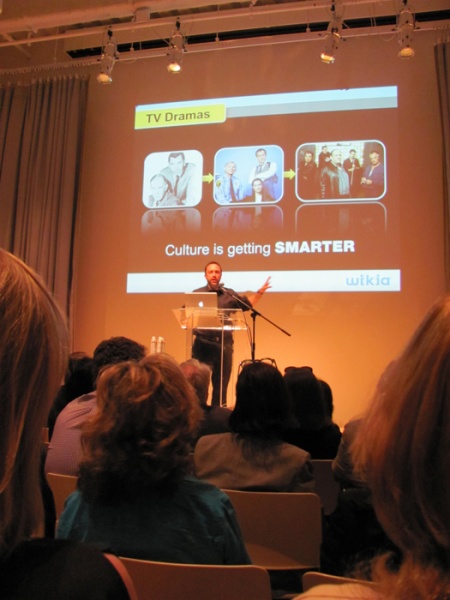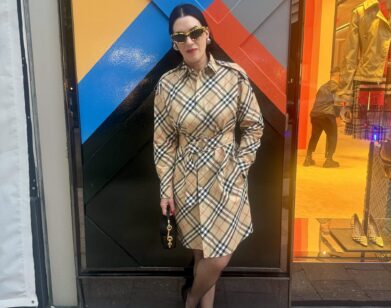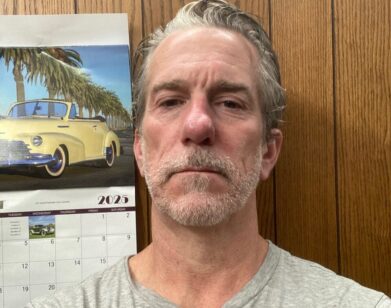Jimmy Wales’s Very Wide Net

PHOTO COURTESY THE NEW MUSEUM
“Imagine a world in which every single person is given free access to the sum of all human knowledge,” was the presumably utopian mission statement issued by Wikipedia founder Jimmy Wales last Thursday night, at the beginning of his PowerPoint presentation hosted by the New Museum. Wales, who was honored as part of the museum’s ongoing Stuart Regen Visionary Series (an annual series that began in 2009 with choreographer Bill T. Jones as the inaugural honoree), is founder of the online encyclopedia Wikipedia, the archive edited by unpaid amateurs guided by “traditions” of objectivity and neutrality.
Wales’ presentation was set up in the midst of the museum’s current exhibition, “Skin Fruit: Works from the Collection of Dakis Joannou.” While the artworks in “Skin Fruit” explore the simulated human form (figurative sculptures by Maurizio Cattelan and Robert Gober, among others, are psychic interpretations of the uncanny), Wales’ talk was washed clean of anything overtly-or one could say problematically-human. Much of his marketing-savvy lecture (replete with grandma-friendly heart-shaped cloud graphics) was pure 1950s, whitewashed optimism.
Yet a compulsion to collect bodies, be it in web “clicks,” seems to unite Wales with Joannou. Wales delights at the growth of Wikipedia: “Tell students to not use Wikipedia? You might as well tell them to not listen to rock ‘n roll,” he exclaimed, harkening, not untruthfully, John Lennon’s infamous proclamation that, “The Beatles are bigger than Jesus.” His good-humored excitement seemed to infect the crowd with an equal desire to see Wikipedia “win”—much of Wales’ discussion centered around just how ubiquitous his network was. Following the grandiose promise of his aforementioned mission statement, that gave the museum’s downstairs lecture center the air of a pep rally. Like art collections and museums, web sites that share and deliver information are not free of the ideologies of their founders. And in the case of Wales, one has to wade through a lot of rhetoric and media-savvy lingo to get to what those ideologies really are.






